Fizzy drinks may have lost some of their sparkle in recent months, but when it comes to fruit juices the market is positively bursting with success. It's an area that's benefiting massively from the current health kick, with sales of pure juice up 7% in value in 2005. The sub-category now makes up 17% of the overall take-home soft drinks market, according to Britvic's 2006 Soft Drinks Report. Fruit drinks, which include products with 99% or less juice content, are also basking in glory. They, too, took a greater share of the market in 2005 with a 6% value rise.
More shoppers are seeking out pure juice and high percentage juice drinks as well as new and interesting flavours and blends. Success stories including a dramatic increase in sales of pomegranate juice and double-digit growth in mango and pineapple juices have added further growth. With this increased interest in the category it's important retailers dedicate enough space for juices in both ambient aisles and chiller units.
Britvic category director Andrew Marsden comments: "Pure juice became the second-largest sub-category and juice drinks were the most dynamic sub-category, with more than 60 new products launched in 2005. Last year we witnessed unprecedented change in the entire food and drink sector with the public mobilised by a whole range of factors to embrace healthier food and drink choices. The soft drinks industry responded to this as manufacturers continued to provide innovative new products to meet the very broad range of tastes and needs within the marketplace."
Manufacturers have been quick to latch onto the growing public awareness driven by the government's 5-a-day campaign and TV programmes including Jamie's School Dinners. Coca-Cola, which has seen sales of its carbonates suffer in recent months, was quick to respond to changing habits and launched its Minute Maid 100% juice in June 2005. A 'try me free' promotion is set to run on bottles of its 50% juice content, Froot Refresh, and the soft drinks giant has just introduced a 100% format to its Capri-Sun brand.
Coca-Cola's Jason Hood, who enjoys the impressive job title of 'head of wellness', explains: "Juice and juice drinks is now the largest and fastest growing segment in soft drinks, worth £1.5m. The traditional drinking occasion for juice has been to ensure a healthy start to the day, but with the growing demand for healthy products, consumers are looking for juice options throughout the day."
Del Monte recently introduced
a new range of chilled juices to its chilled and ambient portfolio. The 100% not from concentrate Juice Bar range includes orange, pineapple and orange, grape & apple variants. Sales director Leigh Edwards says the range is already performing well, and plans are now in place to extend the range with a red-based fruit juice.
"It's been a very good year for juices," says Edwards. "Their share of the market has grown while areas such as carbonates performed badly despite massive innovation. It's an interesting time for the category with 'orange fatigue' continuing and data suggesting that shoppers are seeking out alternative flavours and occasions throughout the day to drink juice. The main things many shoppers are looking for are health, nutrition and naturalness."
Along with other manufacturers, Del Monte has seen huge increases in sales of pineapple juice (up 23%). To meet demand, the company also introduced its ambient pineapple gold range in late 2005. Edwards explains: "We're delighted with the performance of pineapple and we've also seen a resurgence in our tomato juice. There has even been a rise in sales of canned prunes which could suggest shoppers may look to buy more prunes in a juice format. It's extremely important that we're constantly talking to our colleagues in fresh to identify new trends."
Edwards says it's also important retailers set aside enough space for juices in their stores and adds: "Convenience store retailers should be careful that they give juice enough shelf space in both their chillers and ambient aisles. Juice, along with bottled water, is often radically underfaced compared with its market share. Retailers are in danger of missing out on extra sales if they dedicate too much space to a section of the soft drinks category that is not in growth."
Edwards believes retailers should keep an eye out for popular new juice variants and adds: "There is a lot of activity with blueberry and pineapple variants, and manufacturers are looking out for the next new thing. Retailers should look for category growth in the market and seek out good new products. It's also worth separating everyday from premium juices to maximise sales opportunities.
"The next stage for us is to extend our availability across the country. We've recently secured new listings in a number of impulse and high street locations."
While own label accounts for 60% of the take-home pure juice market, Tropicana extended its share over other branded juices with a 14% value increase to £174m, according to this year's Britvic category report. The Pepsico brand enjoyed success with its Essentials range and also extended its Pure Premium range with four new flavours - orange & mango, blueberry blend, tropical fruit and raspberry mandarin.
Success in the convenience sector is vital for Tropicana, says marketing manager Andrew Hartshorn. "Our 250ml PET bottles are doing extremely well and make up about 40% of our business in convenience," he says. "This makes small c-stores key outlets for us. We're also looking to develop our instant consumption range and expect to have more flavours available in smaller drink-now bottles."
It's important retailers offer both take home and drink-now juices to shoppers, according to Hartshorn. "To start with, retailers should stock orange juice and the second most popular flavour, apple, in both sectors" he says. "They should also offer orange in both original and smooth formats. Although space is limited, they should think about including a functional variant."
Hartshorn adds: "Health continues to be the key driving force in the category. Tropicana's juices fit into two sectors - pure fruit and functional. The Pure Premium range targets customers who are looking for purity and simplicity, while our Essentials range has functional added ingredients such as calcium or Benecol for customers who are looking for a product that offers something extra."
A company looking to make its mark on the UK health juice market after tasting success in Australia is Sunraysia. It's famous for its prune juice but the company has developed a bespoke ambient range for the UK including prune, tomato and carrot juice.
UK business manager Justin Presser explains: "We felt that the UK market dynamics were at the right stage for us to enter. People are just starting to wake up to how important diet is. We looked at what was already on offer and developed a smaller range for the UK market."
Presser suggests that retailers looking to stock interesting health juices start with the company's best-seller, prune. Despite the growth of the chilled juice market he says it's important retailers do not neglect the ambient aisles and adds: "Our juices have a 12- to 18-month shelf life as they are hot filled and vacuum sealed in glass. It's true that chilled juices are showing good growth but ambient still has close to a two-thirds share of the market. We have a lot of plans to develop the range and our ambition is to own the health juice market in the UK."
Stephanie Kean from the Serious Food Company, which recently launched a new range of fruit juices, crushes and smoothies, adds: "Consumers are moving away from drinks full of artificial additives and instead want a natural, healthy alternative. All our drinks have no artificial additives, preservatives or colourings and most contain one of the consumer 5-a-day."
Cranberry juice drink manufacturer Ocean Spray is also placing health research at the heart of its advertising. Having recently launched blueberry and pomegranate blends to its ambient range, the company is using the strapline 'Awash with goodness' to drive awareness of the drink's health benefits. Adverts will run in national women's magazines until the end of July.
Business development and brand manager Jonathan Duffin says: "While many consumers know that Ocean Spray is healthy, they're not aware of its potent dual health benefits. The creative campaign will increase consumer awareness about the brand's high anti-oxidant content and its ability to prevent bad bacteria from taking hold without interfering with good bacteria."
Exotic tastes
Led by strong growth in flavours such as pineapple (23%) and mango (42%), exotic juices and blends are enjoying buoyant times. Shoppers are willing to try less mainstream flavours as they extend juice drinking beyond the usual orange and grapefruit in the morning.
A survey carried out by exotic juice drink manufacturer Rubicon showed tropical flavours were at the forefront of shoppers' minds. While orange and apple remain popular, other top flavours include mango, guava, lychee and passionfruit.
"We're seeing a lot of growth in the number of shoppers looking to buy exotic flavoured juices," says Rubicon marketing manager Barbara Down. "It's important that while retailers look after the core big sellers and other new products, they don't shy away from giving enough space to exotic juices. Flavours such as pomegranate have become popular as they are seen as super juices with added health credentials. We recently introduced a single-serve pomegranate flavour that is ideal for lunch boxes.
"While juices are being consumed more throughout the day, this has always been the case for exotics. Our juices have always been put on the table as a soft drink for an evening meal, for example, and never been exclusively consumed by people at breakfast. In the next few months we're going to be looking at the health benefits of certain fruits and with our 25th anniversary next year we'll be launching a seventh flavour. We're also looking to develop products in the wide-mouthed bottle area. We've had good feedback on our 288ml
Tetra Pak range and are working on more single-serve products."
Down says she sees no reason why, where retailers have the space, ambient juices should not be placed in chiller units to increase sales. She adds: "With ambient juices there is a lower risk of wastage, which is always important for owners of smaller stores. Ambient is often easier to handle and despite the growth in chilled still has a long future. Although we have looked at branching into the chilled juice category there are no plans to do so at the moment. However, where we can offer something new and niche then we could possibly move into the category."
Another company that has been profiting from widening consumer tastes is Bottlegreen Drinks. While its background lies in cordials, the launch of its elderflower cordial in a ready-to-drink format has been hailed as a success by the company.
Managing director Simon Speers says sales of its 1ltr and 250ml cartons prove that many shoppers are willing to try out new tastes. "Shoppers are becoming more adventurous in what they drink and want to experiment with new and different flavours," he says. "Bottlegreen is looking to provide a range that can meet that need. There's lots of development around the one-shot on-the-go format and the standard square juice cartons are going out of fashion. Our cartons are more shapely and have a greater shelf standout. The new impulse drinks have been exceptionally well received by the trade."
Speers says that despite the success of elderflower the demand exists for the company to extend its ready-to-drink offering. "We're looking at adding to our range in September," he adds.
"Elderflower is still seen as a little too quirky for some people's tastes so we're looking to introduce a slightly more mainstream flavour. It will be a dark juice packed in the same format."
Speers is quick to add that although carbonates remain the main players in the soft drinks category, many retailers could
offer greater choice at the fixture.
He adds: "I'm not an advocate of
the idea that fizzy drinks are dying - they will continue to hold a very strong position in the category.
But there's a definite move among consumers to seek out more natural, better-for-you and different drinks, and retailers need to respond
to demand."
• Site coolers in an area of the store with high traffic or footfall
• Allocate enough space to the fastest growing brands to ensure that they stay on sale even in busy parts of the day and peak times of the year
• Allocate space to drink-later products at all times of the year, not just in the summer
• Use promotions and special supplier activities
to drive sales.
Source: Coca-Cola Enterprises
More shoppers are seeking out pure juice and high percentage juice drinks as well as new and interesting flavours and blends. Success stories including a dramatic increase in sales of pomegranate juice and double-digit growth in mango and pineapple juices have added further growth. With this increased interest in the category it's important retailers dedicate enough space for juices in both ambient aisles and chiller units.
Britvic category director Andrew Marsden comments: "Pure juice became the second-largest sub-category and juice drinks were the most dynamic sub-category, with more than 60 new products launched in 2005. Last year we witnessed unprecedented change in the entire food and drink sector with the public mobilised by a whole range of factors to embrace healthier food and drink choices. The soft drinks industry responded to this as manufacturers continued to provide innovative new products to meet the very broad range of tastes and needs within the marketplace."
Manufacturers have been quick to latch onto the growing public awareness driven by the government's 5-a-day campaign and TV programmes including Jamie's School Dinners. Coca-Cola, which has seen sales of its carbonates suffer in recent months, was quick to respond to changing habits and launched its Minute Maid 100% juice in June 2005. A 'try me free' promotion is set to run on bottles of its 50% juice content, Froot Refresh, and the soft drinks giant has just introduced a 100% format to its Capri-Sun brand.
Coca-Cola's Jason Hood, who enjoys the impressive job title of 'head of wellness', explains: "Juice and juice drinks is now the largest and fastest growing segment in soft drinks, worth £1.5m. The traditional drinking occasion for juice has been to ensure a healthy start to the day, but with the growing demand for healthy products, consumers are looking for juice options throughout the day."
Del Monte recently introduced
a new range of chilled juices to its chilled and ambient portfolio. The 100% not from concentrate Juice Bar range includes orange, pineapple and orange, grape & apple variants. Sales director Leigh Edwards says the range is already performing well, and plans are now in place to extend the range with a red-based fruit juice.
"It's been a very good year for juices," says Edwards. "Their share of the market has grown while areas such as carbonates performed badly despite massive innovation. It's an interesting time for the category with 'orange fatigue' continuing and data suggesting that shoppers are seeking out alternative flavours and occasions throughout the day to drink juice. The main things many shoppers are looking for are health, nutrition and naturalness."
Along with other manufacturers, Del Monte has seen huge increases in sales of pineapple juice (up 23%). To meet demand, the company also introduced its ambient pineapple gold range in late 2005. Edwards explains: "We're delighted with the performance of pineapple and we've also seen a resurgence in our tomato juice. There has even been a rise in sales of canned prunes which could suggest shoppers may look to buy more prunes in a juice format. It's extremely important that we're constantly talking to our colleagues in fresh to identify new trends."
Edwards says it's also important retailers set aside enough space for juices in their stores and adds: "Convenience store retailers should be careful that they give juice enough shelf space in both their chillers and ambient aisles. Juice, along with bottled water, is often radically underfaced compared with its market share. Retailers are in danger of missing out on extra sales if they dedicate too much space to a section of the soft drinks category that is not in growth."
Edwards believes retailers should keep an eye out for popular new juice variants and adds: "There is a lot of activity with blueberry and pineapple variants, and manufacturers are looking out for the next new thing. Retailers should look for category growth in the market and seek out good new products. It's also worth separating everyday from premium juices to maximise sales opportunities.
"The next stage for us is to extend our availability across the country. We've recently secured new listings in a number of impulse and high street locations."
While own label accounts for 60% of the take-home pure juice market, Tropicana extended its share over other branded juices with a 14% value increase to £174m, according to this year's Britvic category report. The Pepsico brand enjoyed success with its Essentials range and also extended its Pure Premium range with four new flavours - orange & mango, blueberry blend, tropical fruit and raspberry mandarin.
Success in the convenience sector is vital for Tropicana, says marketing manager Andrew Hartshorn. "Our 250ml PET bottles are doing extremely well and make up about 40% of our business in convenience," he says. "This makes small c-stores key outlets for us. We're also looking to develop our instant consumption range and expect to have more flavours available in smaller drink-now bottles."
It's important retailers offer both take home and drink-now juices to shoppers, according to Hartshorn. "To start with, retailers should stock orange juice and the second most popular flavour, apple, in both sectors" he says. "They should also offer orange in both original and smooth formats. Although space is limited, they should think about including a functional variant."
Hartshorn adds: "Health continues to be the key driving force in the category. Tropicana's juices fit into two sectors - pure fruit and functional. The Pure Premium range targets customers who are looking for purity and simplicity, while our Essentials range has functional added ingredients such as calcium or Benecol for customers who are looking for a product that offers something extra."
A company looking to make its mark on the UK health juice market after tasting success in Australia is Sunraysia. It's famous for its prune juice but the company has developed a bespoke ambient range for the UK including prune, tomato and carrot juice.
UK business manager Justin Presser explains: "We felt that the UK market dynamics were at the right stage for us to enter. People are just starting to wake up to how important diet is. We looked at what was already on offer and developed a smaller range for the UK market."
Presser suggests that retailers looking to stock interesting health juices start with the company's best-seller, prune. Despite the growth of the chilled juice market he says it's important retailers do not neglect the ambient aisles and adds: "Our juices have a 12- to 18-month shelf life as they are hot filled and vacuum sealed in glass. It's true that chilled juices are showing good growth but ambient still has close to a two-thirds share of the market. We have a lot of plans to develop the range and our ambition is to own the health juice market in the UK."
Stephanie Kean from the Serious Food Company, which recently launched a new range of fruit juices, crushes and smoothies, adds: "Consumers are moving away from drinks full of artificial additives and instead want a natural, healthy alternative. All our drinks have no artificial additives, preservatives or colourings and most contain one of the consumer 5-a-day."
Cranberry juice drink manufacturer Ocean Spray is also placing health research at the heart of its advertising. Having recently launched blueberry and pomegranate blends to its ambient range, the company is using the strapline 'Awash with goodness' to drive awareness of the drink's health benefits. Adverts will run in national women's magazines until the end of July.
Business development and brand manager Jonathan Duffin says: "While many consumers know that Ocean Spray is healthy, they're not aware of its potent dual health benefits. The creative campaign will increase consumer awareness about the brand's high anti-oxidant content and its ability to prevent bad bacteria from taking hold without interfering with good bacteria."
Exotic tastes
Led by strong growth in flavours such as pineapple (23%) and mango (42%), exotic juices and blends are enjoying buoyant times. Shoppers are willing to try less mainstream flavours as they extend juice drinking beyond the usual orange and grapefruit in the morning.
A survey carried out by exotic juice drink manufacturer Rubicon showed tropical flavours were at the forefront of shoppers' minds. While orange and apple remain popular, other top flavours include mango, guava, lychee and passionfruit.
"We're seeing a lot of growth in the number of shoppers looking to buy exotic flavoured juices," says Rubicon marketing manager Barbara Down. "It's important that while retailers look after the core big sellers and other new products, they don't shy away from giving enough space to exotic juices. Flavours such as pomegranate have become popular as they are seen as super juices with added health credentials. We recently introduced a single-serve pomegranate flavour that is ideal for lunch boxes.
"While juices are being consumed more throughout the day, this has always been the case for exotics. Our juices have always been put on the table as a soft drink for an evening meal, for example, and never been exclusively consumed by people at breakfast. In the next few months we're going to be looking at the health benefits of certain fruits and with our 25th anniversary next year we'll be launching a seventh flavour. We're also looking to develop products in the wide-mouthed bottle area. We've had good feedback on our 288ml
Tetra Pak range and are working on more single-serve products."
Down says she sees no reason why, where retailers have the space, ambient juices should not be placed in chiller units to increase sales. She adds: "With ambient juices there is a lower risk of wastage, which is always important for owners of smaller stores. Ambient is often easier to handle and despite the growth in chilled still has a long future. Although we have looked at branching into the chilled juice category there are no plans to do so at the moment. However, where we can offer something new and niche then we could possibly move into the category."
Another company that has been profiting from widening consumer tastes is Bottlegreen Drinks. While its background lies in cordials, the launch of its elderflower cordial in a ready-to-drink format has been hailed as a success by the company.
Managing director Simon Speers says sales of its 1ltr and 250ml cartons prove that many shoppers are willing to try out new tastes. "Shoppers are becoming more adventurous in what they drink and want to experiment with new and different flavours," he says. "Bottlegreen is looking to provide a range that can meet that need. There's lots of development around the one-shot on-the-go format and the standard square juice cartons are going out of fashion. Our cartons are more shapely and have a greater shelf standout. The new impulse drinks have been exceptionally well received by the trade."
Speers says that despite the success of elderflower the demand exists for the company to extend its ready-to-drink offering. "We're looking at adding to our range in September," he adds.
"Elderflower is still seen as a little too quirky for some people's tastes so we're looking to introduce a slightly more mainstream flavour. It will be a dark juice packed in the same format."
Speers is quick to add that although carbonates remain the main players in the soft drinks category, many retailers could
offer greater choice at the fixture.
He adds: "I'm not an advocate of
the idea that fizzy drinks are dying - they will continue to hold a very strong position in the category.
But there's a definite move among consumers to seek out more natural, better-for-you and different drinks, and retailers need to respond
to demand."
Top tips
• Site coolers in an area of the store with high traffic or footfall
• Allocate enough space to the fastest growing brands to ensure that they stay on sale even in busy parts of the day and peak times of the year
• Allocate space to drink-later products at all times of the year, not just in the summer
• Use promotions and special supplier activities
to drive sales.
Source: Coca-Cola Enterprises





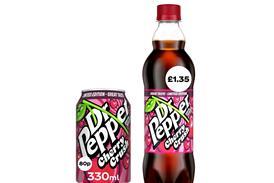


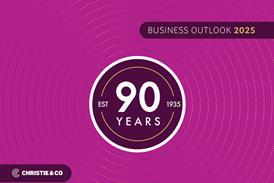





















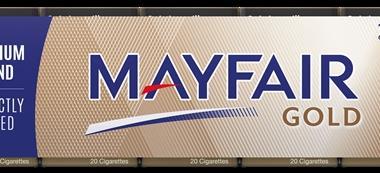

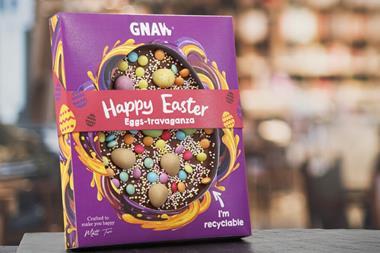
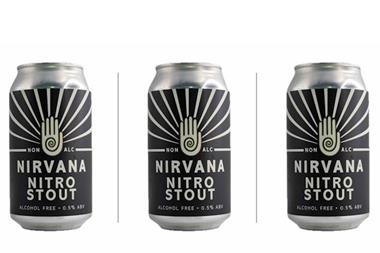
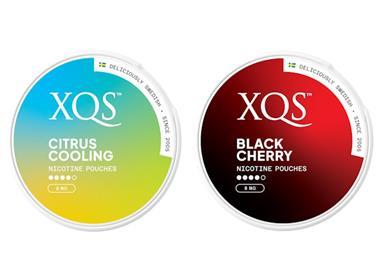
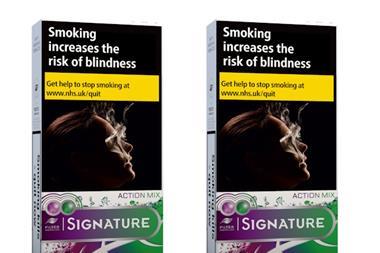







No comments yet